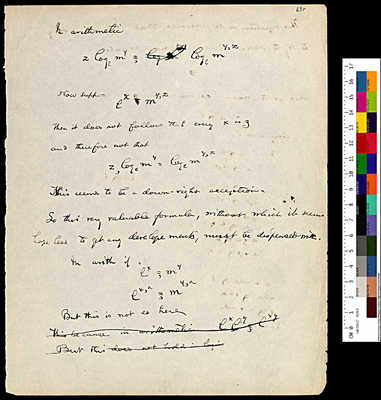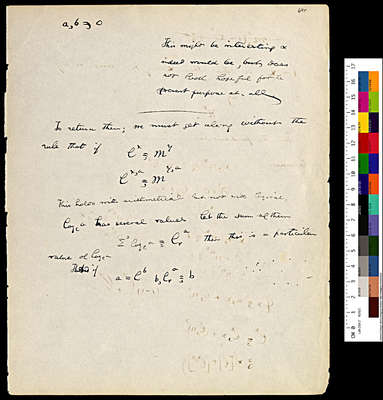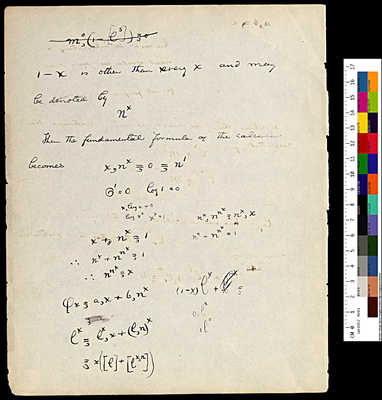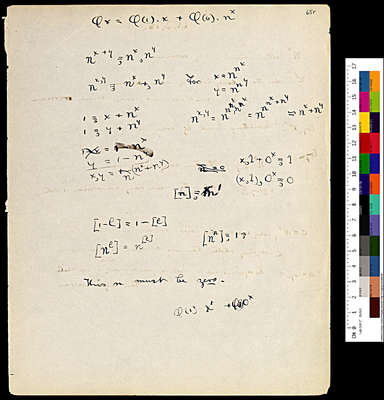Pages
5
In arithmetic [...] now suppose
then it does not follow that every x is z and therefore not that [...] This seems to be a downright exception. So this very valuable formula, [...] which it seems hopeless to get any developments, must be dispensed [...].
In arith if [...]
But this is not [...] here
7
64r
a , b =, 0
This might be interesting and indeed would be, but does not look hopeful for the present purpose at all.
______________________________________
In return, then; we must get along without the rule that if
L (exp. x) =, M (exp. y)
L (exp. x,a) =, M (exp. y,a)
This holds with arithmetical but not with logical.
Log (lower exp. e) a has several values Let the sum of them
Addition (exp.,) Log (exp. a, lower exp. e) = L (exp.a, lower exp.r)
then this is a particular value of Log (lower exp. e a)
Then if a = L (exp. b) b, L (exp.a, lower exponential r) =, b




